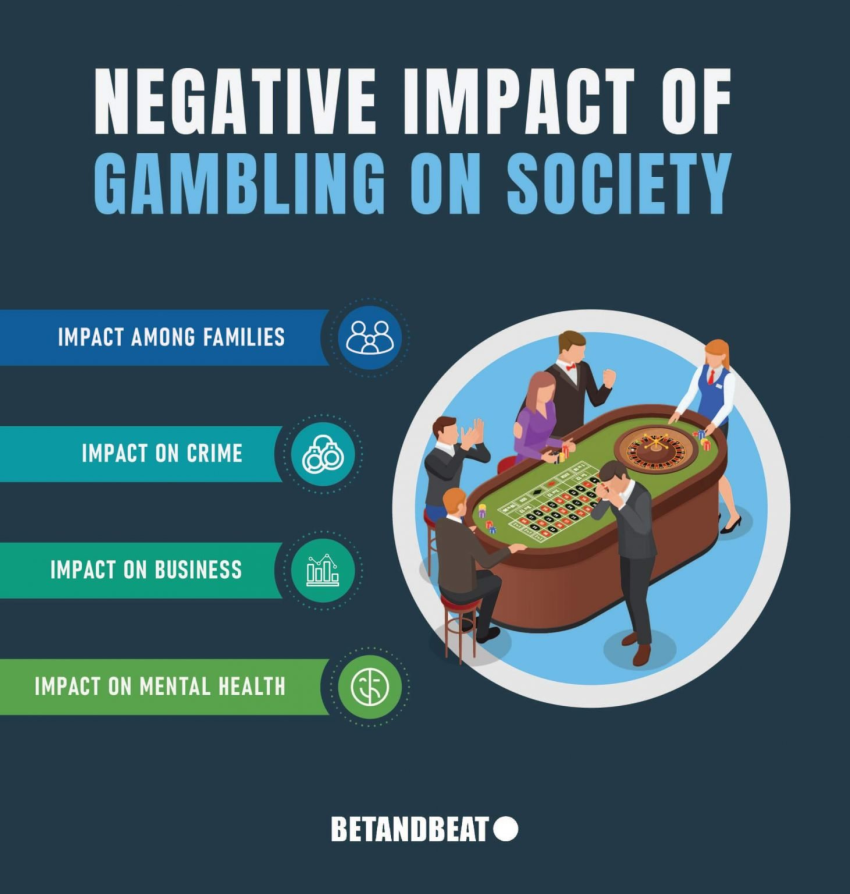Gambling affects society in profound ways, transforming both community dynamics and individual lives. As it becomes increasingly accessible through online platforms, the impact of gambling spans not just economic growth but also serious public health challenges. Gambling addiction, a hidden epidemic, poses risks that can lead to financial ruin and familial distress, highlighting the urgent need for responsible gambling measures. Moreover, the youth gambling risks demand immediate attention, as younger populations are particularly vulnerable to the allure of gambling. In understanding how gambling affects society, it is clear that comprehensive regulations and awareness campaigns are vital to mitigate its adverse effects.
The influence of wagering activities on social structures is undeniable, intertwining with economic prosperity and public well-being. This intricate relationship raises crucial discussions about gambling addiction and the alarming youth gambling risks that surface in today’s interconnected world. Striking a balance between enjoying recreational betting and implementing responsible gambling initiatives is essential. As regulations evolve, society must recognize the cultural shifts surrounding gambling, often seen as mere entertainment rather than a potential hazard. Emphasizing education and awareness can empower individuals to navigate the complexities of gambling responsibly.
The Effects of Gambling on Youth: Understanding the Risks
The rise of online gambling platforms has unfortunately made gambling more accessible to younger individuals, increasing the risks associated with youth gambling. Studies reveal that adolescents are more susceptible to developing gambling addictions due to their still-developing brains, making impulsive decisions based on social and peer influences. Exposure to gambling at a young age can lead to serious consequences, including compromised academic performance, strained family relationships, and mental health issues. It is crucial for guardians and educators to recognize these vulnerabilities and act to mitigate the dangers associated with youth gambling.
As society often underestimates the allure of gambling for youths, we must emphasize the importance of educational initiatives that raise awareness about the risks involved. Implementing programs that inform young people about gambling addiction, financial consequences, and responsible gambling practices is essential. Schools, community centers, and parents should work together to foster open discussions about gambling behaviors, equipping youths with the skills needed to make informed choices about their engagement with this potentially harmful activity.
Gambling Affects Society: Balancing Economic Benefits and Community Well-Being
The economic impact of gambling cannot be ignored, as it generates significant revenue that supports various public services, such as education and healthcare. However, this financial boon comes with a price, particularly when considering the societal costs associated with gambling-related issues, including addiction and criminal behavior. As certain regions reap the benefits of legalized gambling, other communities may suffer the consequences of gambling addiction, necessitating a balance between economic growth and health concerns. Communities must assess not only the fiscal implications but also the broader effects gambling has on public well-being.
In navigating the societal effects of gambling, regulators and lawmakers face the challenge of fostering responsible gambling practices while harnessing economic advantages. This requires establishing robust gambling regulations that prioritize public health and minimize the risks of addiction. By promoting responsible gambling initiatives and providing access to support for those struggling with addiction, society can work towards creating an environment that respects individual freedoms, while also safeguarding the community’s overall welfare.
Frequently Asked Questions
What are the societal impacts of gambling addiction?
Gambling addiction significantly affects society by leading to personal and social turmoil. It can result in financial hardships, increased mental health issues, and strained familial relationships. The broader societal costs include healthcare expenditures related to treating gambling addiction and a decline in workplace productivity. Understanding these impacts highlights the importance of implementing responsible gambling measures and effective regulations.
How does gambling affect youth and what are the risks associated with it?
Youth gambling poses significant risks, as young individuals are particularly vulnerable to developing gambling addictions. Early exposure to gambling can hinder their decision-making skills and contribute to long-term mental health issues. To mitigate these risks, society must enforce age-appropriate gambling regulations and promote responsible gambling initiatives that educate young people about the dangers of gambling.
| Key Points | Details |
|---|---|
| 1. Economic Impact | Gambling generates significant revenue for public services but has societal costs. |
| 2. Gambling Addiction | Affects 1-2% of adults, leading to financial and personal consequences. |
| 3. Legal Changes | Ongoing legal disputes reflect the need for better regulations on gambling. |
| 4. Psychological Factors | Overconfidence drives gambling behavior, necessitating awareness campaigns. |
| 5. Responsible Gambling | Initiatives are being developed to promote safer gambling practices. |
| 6. Youth Vulnerability | Young people are at a higher risk of gambling addiction and its impacts. |
| 7. Sports Betting | Increased interest in sports betting highlights societal concerns over regulation. |
| 8. Public Health | Gambling behaviors correlate with mental health issues like depression. |
| 9. Family Impact | Gambling can strain relationships and impact family dynamics. |
| 10. Societal Attitudes | Changing perceptions of gambling as entertainment complicate social dynamics. |
Summary
Gambling affects society in profound ways, intertwining economic benefits with significant social challenges. As gambling permeates deeper into our daily lives, its implications are far-reaching, influencing everything from public health to family dynamics. While the industry generates considerable revenue for public services, it simultaneously poses the risk of addiction, particularly among vulnerable populations like youth. The ongoing evolution of legal frameworks surrounding gambling reflects societal attitudes that have shifted towards normalization and acceptance. This nuanced landscape underscores the importance of fostering responsible gambling practices and creating robust support systems for those affected by gambling-related issues. By engaging in informed discussions and promoting awareness, society can strive towards maximizing the benefits of gambling while mitigating its risks.
